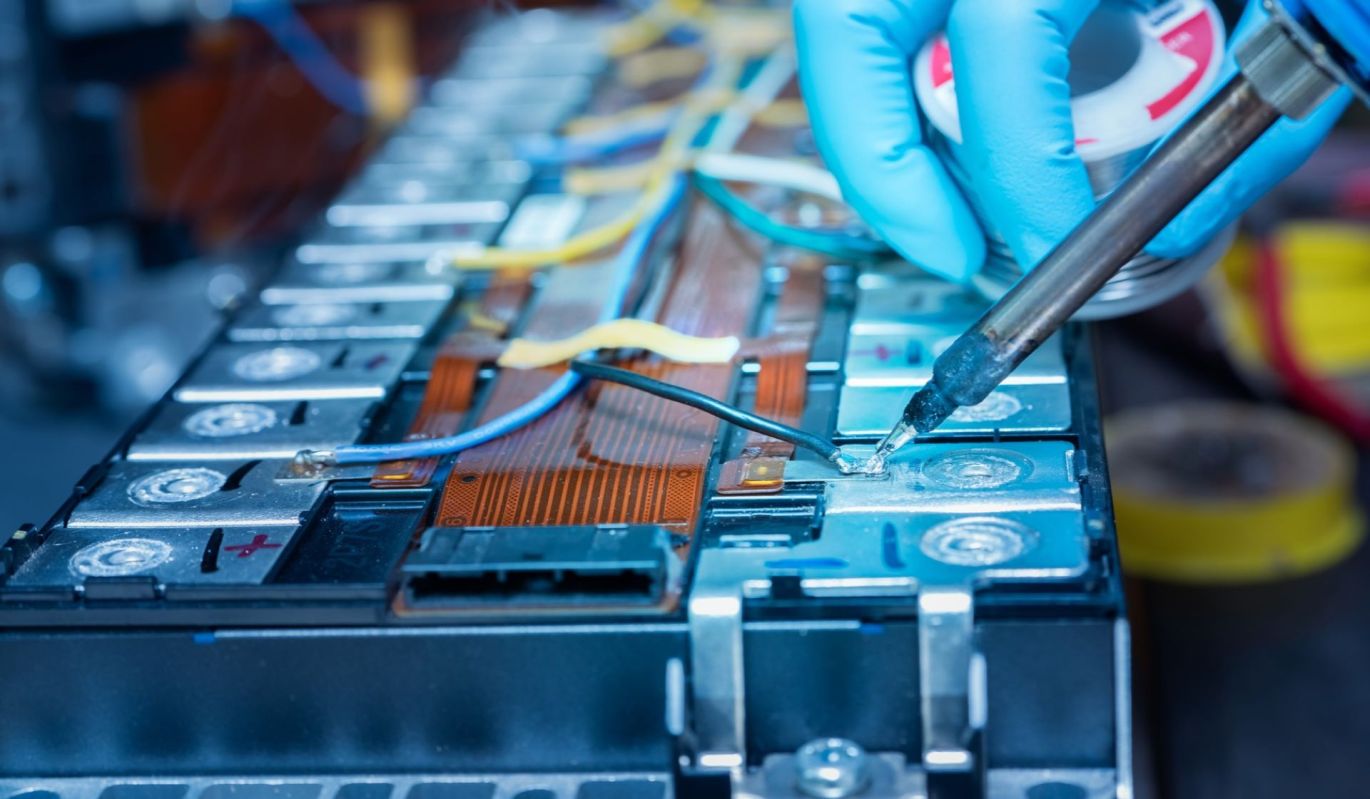Sometimes making a product more affordable and eco-friendly doesn't take a radical change in materials; all you need is a more streamlined manufacturing process.
That's what Canada's Nano One has focused on since its beginnings in 2011. "Back in the day, I think everyone was — and still are, for that matter — trying to invent new cathode materials [for batteries]," Nano One CEO and co-founder Dan Blondal told The Cool Down. "But at the end of the day, we felt that really we had to look at making the existing cathode materials more efficiently."
Lithium-ion batteries are the cornerstone of today's rechargeable battery technology. As humanity moves away from energy sources like oil and coal that produce air pollution and toward clean but variable solutions like wind and solar, batteries are becoming a vital part of the new system.
Now, Nano One hopes to help with that by improving on the process for making batteries.
The company's patented One-Pot Process is deceptively simple. Normally, lithium-ion batteries include a cathode material made up of clusters of tiny crystals covered in a protective coating, as Nano One explains in an informational video. The coating stops side reactions inside the battery that shorten its life span and create dangerous byproducts.
But as the crystal clusters expand and contract, the coating cracks. A coating on a single crystal lasts much longer, but forming large enough single crystals during the manufacturing process takes too much extra time and heat, making the process less efficient and more expensive.
Nano One's solution is straightforward: mixing the coating material with the lithium and other metals before applying heat.
"We went after it from a crystal level, and we coat from the inside out," Blondal explained. "When you cook it in the furnace, it segregates out to the surface of each little crystal. ... You do that without adding more furnace time, without adding extra steps, so it's a cost-effective way of coating the materials."
The result is nano-sized crystals that each have their own individual coating. According to Blondal, that makes them a whopping four times as durable as crystal clusters, without hurting their performance or requiring any changes to the overall battery design.
But the real benefit, as the Nano One website explains, is how much this simplifies the supply chain, eliminating many steps that use extra energy and resources while producing waste.
"In doing so, we're driving down not only the environmental footprint and the energy intensity and the byproducts, the waste streams — but we're also trying to reduce the cost," Blondal said.
Blondal believes a crucial step in reducing the environmental impact of lithium-ion batteries is switching from nickel-manganese-cobalt oxide (NMC) cathode materials to lithium iron phosphate (LFP), which currently dominates the lithium battery market in China.
"We think of an electric vehicle as being more efficient than a gas vehicle, but really, what goes into those batteries is so important," he said.
Other efforts to create more eco-friendly batteries have often focused on identifying new, better battery materials — but according to Blondal, none of them are likely to replace lithium.
"We need everything we can get our hands on in terms of storing energy. Every single battery chemistry and type of battery that's out there has different strengths and weaknesses ... and I think they will address different parts of the market," he said. "Lithium-ion also has a 30-year head start on manufacturing."
Still, according to Blondal, there wasn't much support for his vision when Nano One was first founded, saying that "no one really cared whether you were improving the environmental footprint or the energy footprint of making cathode materials."
However, that started to shift in 2020, he said.
"We started to see the automotive companies starting to care a little bit more about this," he said. "We started to see investment from the big, integrated miners in improving the supply chain. I think our timing, at the end of the day, has been very good — maybe a bit prescient."
Today, Nano One is in a much more promising position, with partners like Sustainable Development Technology Canada, chemical company BASF, Umicore, and Our Next Energy. Blondal hopes with their help, he'll see his company's improved cathode manufacturing process spread through the industry.
"It's cleaner, and greener, it's leaner, and it's cost-effective," he said. "It brings all the societal benefits, the environmental benefits, and the energy benefits — without the extra price tag."
Join our free newsletter for weekly updates on the coolest innovations improving our lives and saving our planet.









